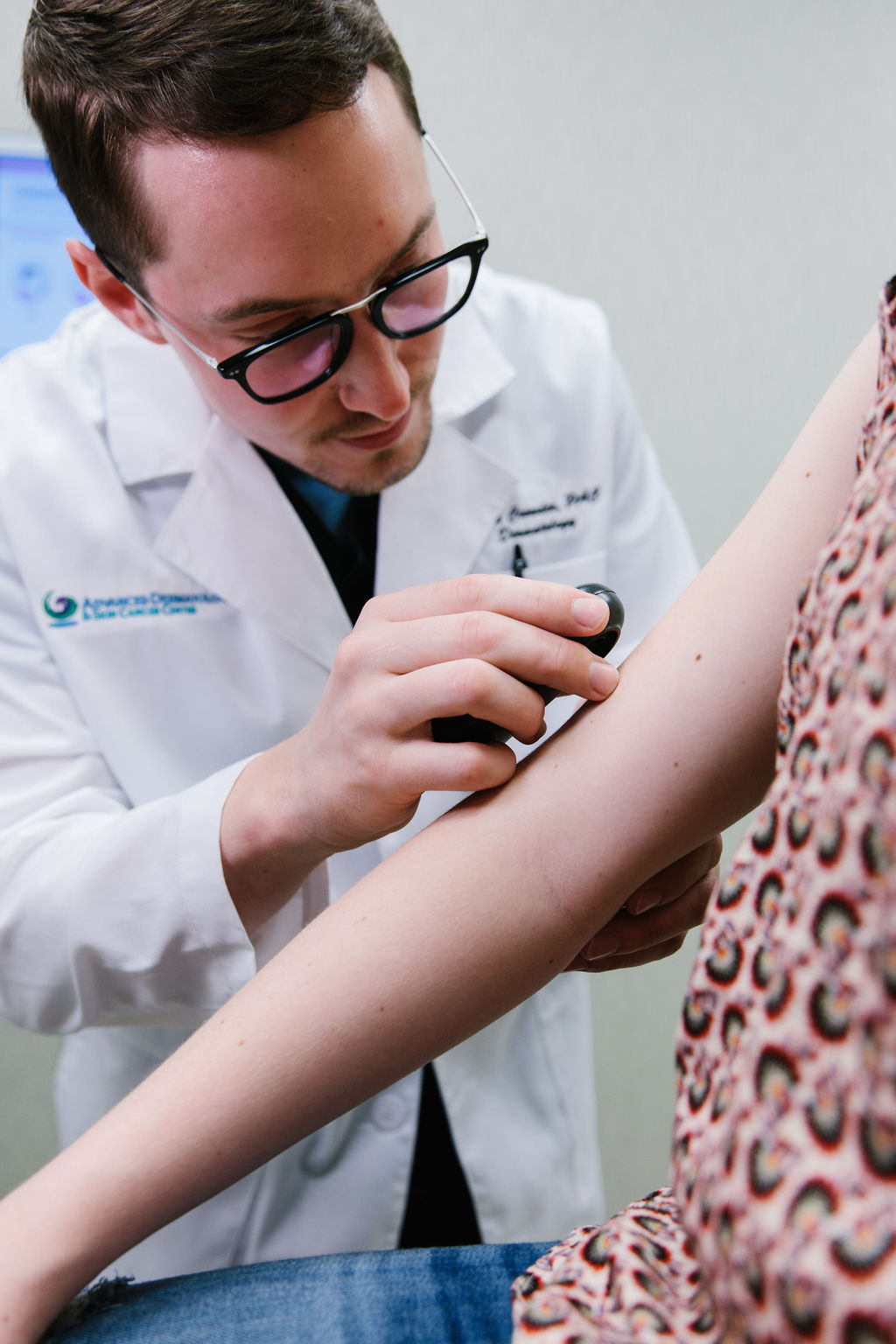Healthy Skin Tips – Skin 101
Since November is National Healthy Skin Month, let’s talk healthy skin tips.
Healthy Skin Tips:

- Wash up. Shower in warm—not hot—water; use mild cleansers that don’t irritate; and wash gently—don’t scrub.
- Block sun damage. Avoid intense sun exposure, use sunscreen, and wear protective clothing. We recommend a Broad Spectrum UVA UVB SPF 30 sunscreen. Reapply throughout the day.
- Don’t use tanning beds or sunlamps. They emit the same harmful UV radiation as the sun.
- Hydrate. Drink plenty of water and use gentle moisturizers, lotions, or creams.
- Reduce stress. Stress can harm your skin and other body systems.
- Get enough sleep. Experts recommend about 9 hours a night for teens and 7-8 hours for adults.
- Examine your skin monthly. Pick a day you’ll remember, like the first day of the month. Examine your skin for anything that looks different and take note. Talk to your doctor if you notice any odd changes to your skin, like a rash or mole that changes size or color. We have a great resource online all about Self Skin Exams.
Here are 10 facts about your skin:

- Your skin is made up of three layers. The epidermis, which is the most outer layer of the skin; the dermis, which is the middle layer; and the subcutaneous layer, which is the inner most layer.
- Your skin is the largest organ of the body. It weighs approximately 8lbs.
- The average human being has 21 sq. ft. of skin and about 300 million skin cells.
- Collagen is what determines how smooth your skin is. Exercise increases blood flow of nutrients and water to the skin’s surface, making collagen thicker. Your skin loses collagen as you age.
- Your skin renews itself every 28 days. As you age, your skin takes longer to renew. That’s why it is recommended that you exfoliate and supplement your skin’s renewal process with dermaplaning and chemical peels.
- Caffeine, nicotine, and alcohol constrict blood vessels and prevent nutrients from feeding the skin, therefore speeding up the aging process.
- Going to bed with makeup on can age your skin up to seven times faster than normal. Toxins and pollutants remain on the skin if you do not cleanse each night. So don’t forget to wash your face nightly!
- The skin on your mouth is 200 times more responsive than your fingerprints. It is factual that lips are high on the scale of most sensitive body parts.
- Oily skin is more prone to breakouts, but less prone to wrinkles.
- Skin color is caused by melanin. Melanin is a substance in your body that produces hair, eye, and skin pigmentation. The more melanin you produce, the darker your eyes, hair and skin will be.

Recommended Posts
Showing 2 comments





Amazing blog, about Healthy Skin Tips, very useful information!, Keep Sharing., thank you for sharing.
Wonderful post. and you Nice used words in this article and beautifully post it. Thanks for sharing.